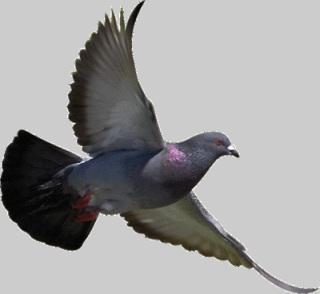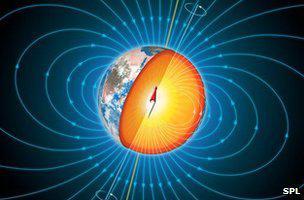 Pigeon in flight. How does he find his way back home?: image via gif-favicon.com
Pigeon in flight. How does he find his way back home?: image via gif-favicon.com
Neuroscience professors at Baylor College of Medicine in Houston have led us one giant step closer to learning about how pigeons, and perhaps other birds and animals, navigate their way home. We know that they rely on the Earth's magnetic field, but we know less about their brain's neural mechanisms that allow the magnetic reception. The Baylor scientists found 53 neural cells that respond, dubbing them the pigeons GPS cells.
Previously, magnetic receptors have been identified by researchers in the retina, nose or beak, and inner ear of vertebrates, and expression markers have been identified in various brain regions activated by magnetic stimulation, but the Baylor study actually sought to identify the central neural mechanisms, the single cell activity, that is responsible for coding magnetic field direction.

Each of the 53 neurons responded differently to the magnetic field, but they all responded with a compass-like reading up or down, north/south directionally, and their positions in relation to those poles. Each of the GPS cells also varied in strength in response to the changes in the experimental magnetic fields, but the strongest responses were to the actual magnetic field of the earth.
"People had reported in the past... that birds do not seem to respond to the polarity of the magnetic field, yet here we have neurons that are in fact doing that," Prof Dickman told BBC News.
"That's one of the beautiful aspects of what we've identified, because it shows how single brain cells can record multiple properties or complex qualities in a simple way."
BBC News, Science
That's the buzz for today!



COMMENTS ( 2 )
posted on 09 January at 09:40
Hi there it's me, I am also visiting this site regularly, this web site is really fastidious and the people are genuinely sharing pleasant thoughts.
posted on 02 October at 09:14
I entirely understand everything you have said. Actually, I looked through your many other articles and I think you happen to be certainly right. Excellent job with this website.